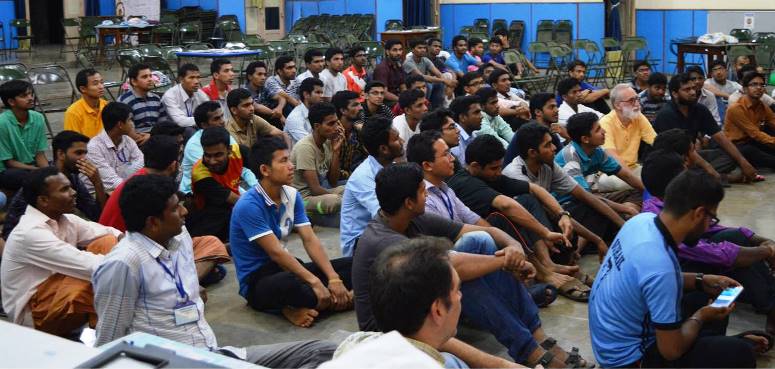
Nov 19, 2016 | Non categorizzato
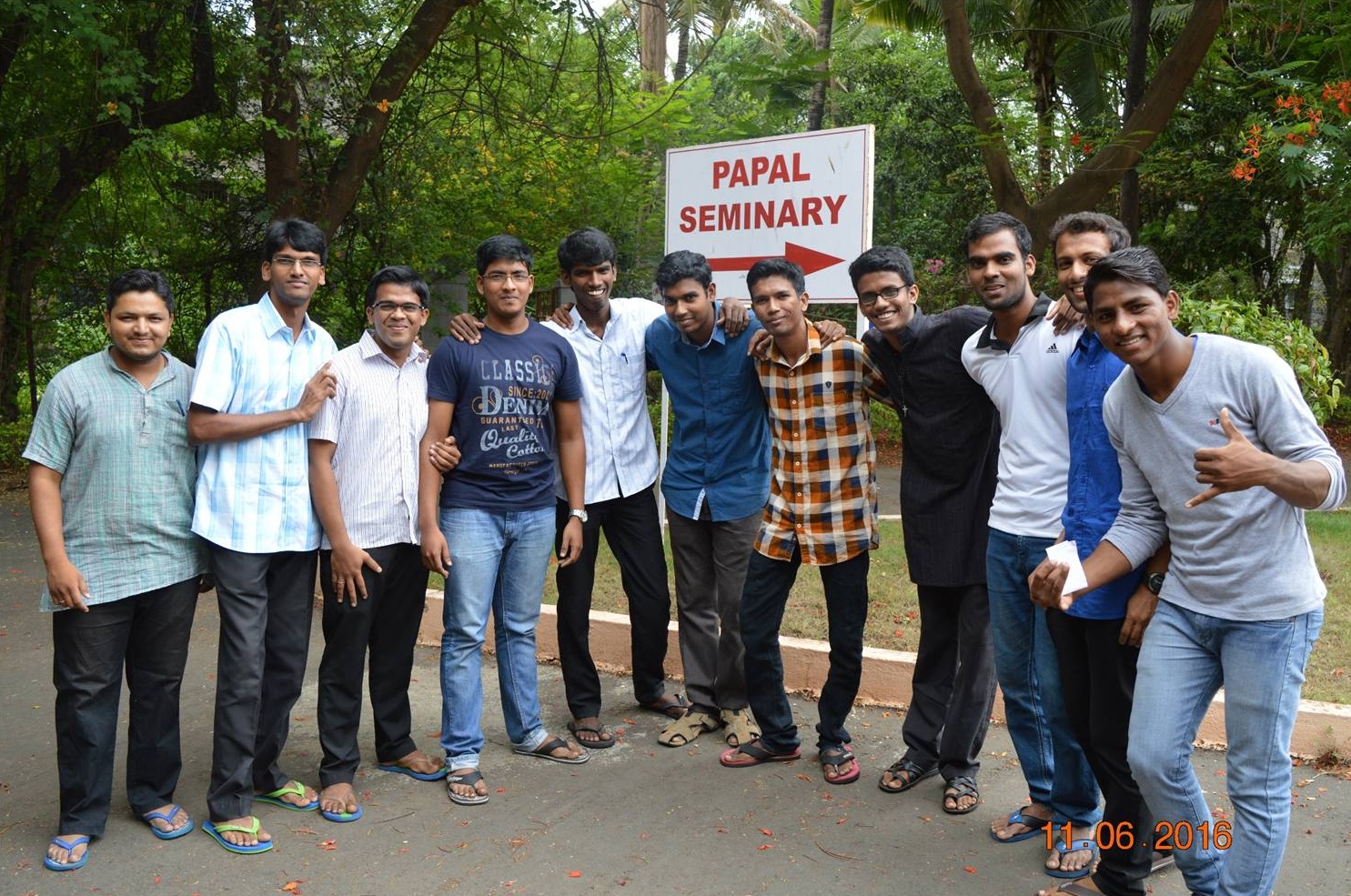 “I learned to be open and not to sweep the dust under the rug,” remarked one seminarians who had attended the workshop on group dynamics based on the Focolare’s spirituality of unity. “I realized that I have to think positive in all that I do,” said another one with great enthusiasm. The spirit of these young men is striking. It is also surprising that in India – a land with thousands of rites and divinities, a land of Hinduism and Buddhism – there should a Catholic seminary with so many young men. The Focolare’s relationship with the Pontifical Seminary of India goes back to 1980. Since then, focolarini on various occasions have been invited to present their spirituality to the seminarians. Many of those seminarians who moved on to become priests and bishops continued to promote the communitarian dimension of the Christian message, which is not always easy to do in their pastoral ministry. In 2016 they asked the Movement for a three-day workshop on group dynamics. It was the first time that the focolarini in Mumbai were faced with such a project, but they accepted the challenge. With a team of 12 men, women, experts from the fields of psychology and relationship, they got to work at putting together a programme for seminarians. It was a demanding task, because of the diversity of cultures among the seminarians who came from all over India, and also because of their different courses of study: from high school to philosophy and theology. The goal of the workshop was to provide the seminarians the tools they could use to help create a community. They had been asked to draw on those elements of Focolare spirituality that have to do with interpersonal relationships: “making ourselves one” with the other; deep listening; the pact of mutual love; sharing experiences of living the Word; giving priority to relationships. These tools were presented from the point of view of psychology and interpersonal relationships through a mixture of brief reports, roll play, testimonies of lay people and clergy and applying the tools to their own lives.
“I learned to be open and not to sweep the dust under the rug,” remarked one seminarians who had attended the workshop on group dynamics based on the Focolare’s spirituality of unity. “I realized that I have to think positive in all that I do,” said another one with great enthusiasm. The spirit of these young men is striking. It is also surprising that in India – a land with thousands of rites and divinities, a land of Hinduism and Buddhism – there should a Catholic seminary with so many young men. The Focolare’s relationship with the Pontifical Seminary of India goes back to 1980. Since then, focolarini on various occasions have been invited to present their spirituality to the seminarians. Many of those seminarians who moved on to become priests and bishops continued to promote the communitarian dimension of the Christian message, which is not always easy to do in their pastoral ministry. In 2016 they asked the Movement for a three-day workshop on group dynamics. It was the first time that the focolarini in Mumbai were faced with such a project, but they accepted the challenge. With a team of 12 men, women, experts from the fields of psychology and relationship, they got to work at putting together a programme for seminarians. It was a demanding task, because of the diversity of cultures among the seminarians who came from all over India, and also because of their different courses of study: from high school to philosophy and theology. The goal of the workshop was to provide the seminarians the tools they could use to help create a community. They had been asked to draw on those elements of Focolare spirituality that have to do with interpersonal relationships: “making ourselves one” with the other; deep listening; the pact of mutual love; sharing experiences of living the Word; giving priority to relationships. These tools were presented from the point of view of psychology and interpersonal relationships through a mixture of brief reports, roll play, testimonies of lay people and clergy and applying the tools to their own lives.  Right from the start the workshop was enthusiastically received and supported by the lively participation, which helped to make the passage from “me to us” that the young men were trying to make. Such a process will be very useful to them when they return to work in groups, and when they will be called upon to start up and conduct groups of other people. It will enable them to put into practice that culture of encounter that is so underscored by Pope Francis. Father George called the workshop “an authentic experience of God among the people.” The intuition to translate the spirituality into life, and the ideas into daily life, turned out to be a winning idea. This is confirmed by the abundant feedback that was written by the participants: “I can everything, but under one condition: that I’m always attentive to the others.” “The encouragement to put the Gospel into practice and not only study it, provoked a radical change in my life.” “This workshop has turned out to be a springboard for my vocation and my way of interacting. The other people’s stories were a great lesson for me.” “It was an extremely fruitful experience of training in being communion. New paths have opened before us. It’s a grace to be able to offer the spirituality of unity in the current social context.”
Right from the start the workshop was enthusiastically received and supported by the lively participation, which helped to make the passage from “me to us” that the young men were trying to make. Such a process will be very useful to them when they return to work in groups, and when they will be called upon to start up and conduct groups of other people. It will enable them to put into practice that culture of encounter that is so underscored by Pope Francis. Father George called the workshop “an authentic experience of God among the people.” The intuition to translate the spirituality into life, and the ideas into daily life, turned out to be a winning idea. This is confirmed by the abundant feedback that was written by the participants: “I can everything, but under one condition: that I’m always attentive to the others.” “The encouragement to put the Gospel into practice and not only study it, provoked a radical change in my life.” “This workshop has turned out to be a springboard for my vocation and my way of interacting. The other people’s stories were a great lesson for me.” “It was an extremely fruitful experience of training in being communion. New paths have opened before us. It’s a grace to be able to offer the spirituality of unity in the current social context.”
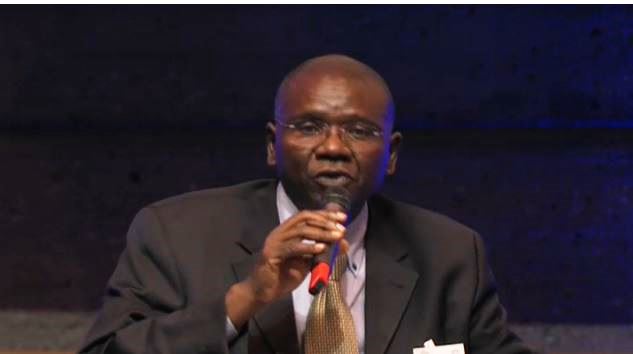
Nov 18, 2016 | Focolare Worldwide
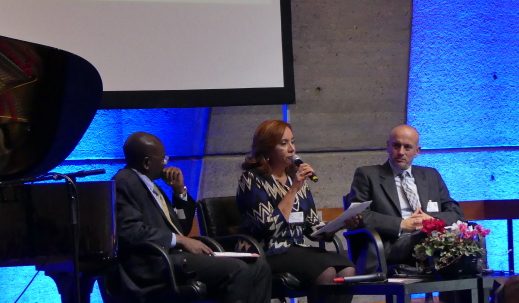 «In a world where globalisation dictates its laws, one of the most important paradoxes we are encountering is that the voice of the southern end of the world is being ignored. Though rich in natural resources like diamonds, gold, oil and other precious minerals, Africa faces: growing poverty and underdevelopment, the worst life expectancy, and a high level of illiteracy, despite the millions of dollars in western aid deposited along the years in various projects. Why? The dramatic response is not only the war we have to suffer, or diseases, but especially corruption which in Africa has become a normal and accepted fact, tearing the continent apart. It is a continent in which the poor have to be corrupt in order to survive, get treated in hospitals, enter one of the “best” professional schools, obtain jobs and get out of jail. Not even the laws are able to eradicate this evil. In most African countries, the law is of western origin, with some nuances taken from local cultures. Protection of the individual alone, for as much as is universally accepted, goes against the principle of the community, most dear to African traditions and that underline the importance of solidarity. The individual is such only if he belongs to a community and acts in function of the community. It is the principle of the “Ubuntu”: I exist because we exist. In the African culture, the Ubuntu is an invitation to support and help each other; it is the awareness of one’s own duties. This how Nelson Mandela put it: Ubuntu means to ask oneself, “Do I want to help the community around me to improve?” It is a rule of life based on respect for others, and a belief in a bond of sharing which unites all of humanity. It is a desire for peace. And yet, precisely in Africa, peace is lacking in many places and the remote cause of the conflicts is absurdly one’s own immense wealth. There are battles to control the minerals and the victims of these conflicts are the weakest people. In the effort to integrate one’s own values with those inherited from colonisation and in the face of the challenges of a world in which economic development gives the right to speak up, Africa is increasingly losing its own values, without acquiring the truly important ones. In my country, Cameroon, which is full of corruption, a small town arose. Chiara Lubich created it by carrying out social
«In a world where globalisation dictates its laws, one of the most important paradoxes we are encountering is that the voice of the southern end of the world is being ignored. Though rich in natural resources like diamonds, gold, oil and other precious minerals, Africa faces: growing poverty and underdevelopment, the worst life expectancy, and a high level of illiteracy, despite the millions of dollars in western aid deposited along the years in various projects. Why? The dramatic response is not only the war we have to suffer, or diseases, but especially corruption which in Africa has become a normal and accepted fact, tearing the continent apart. It is a continent in which the poor have to be corrupt in order to survive, get treated in hospitals, enter one of the “best” professional schools, obtain jobs and get out of jail. Not even the laws are able to eradicate this evil. In most African countries, the law is of western origin, with some nuances taken from local cultures. Protection of the individual alone, for as much as is universally accepted, goes against the principle of the community, most dear to African traditions and that underline the importance of solidarity. The individual is such only if he belongs to a community and acts in function of the community. It is the principle of the “Ubuntu”: I exist because we exist. In the African culture, the Ubuntu is an invitation to support and help each other; it is the awareness of one’s own duties. This how Nelson Mandela put it: Ubuntu means to ask oneself, “Do I want to help the community around me to improve?” It is a rule of life based on respect for others, and a belief in a bond of sharing which unites all of humanity. It is a desire for peace. And yet, precisely in Africa, peace is lacking in many places and the remote cause of the conflicts is absurdly one’s own immense wealth. There are battles to control the minerals and the victims of these conflicts are the weakest people. In the effort to integrate one’s own values with those inherited from colonisation and in the face of the challenges of a world in which economic development gives the right to speak up, Africa is increasingly losing its own values, without acquiring the truly important ones. In my country, Cameroon, which is full of corruption, a small town arose. Chiara Lubich created it by carrying out social  work in favour of the Bangwa people who were at risk of extinction but found salvation instead. But with this work, Chiara above all introduced a new lifestyle, drawing inspiration from the principle of fraternity: giving rise to a coexistence inspired by reciprocity in true justice, which squashes every quarrel, prevents conflicts, and finds solutions to problems also in the families; nobody steals, kills, and the “paths of peace” are pursued. Fraternity can thus become also a lawful principle for coexistence, change relationships in the name of acceptance and inclusion, and translate into solidarity, responsibility and mutual assistance. Peace is expressed today as development, security, universality of human rights, and respect for life: peace is a right, but awaits that lawfulness to be used as its tool. And for this, Declarations and Treaties will not suffice if expressed only in the singular sense, affirming the individual and giving room to interests and conflicts. The “universal” does not mean “absolute,” but “collective”; it is what unites otherwise there will be no relationships between individuals and cultures, or concepts that clash with each other . And if universality enclosed in human dignity allows relationships with each other, fraternity which is the new paradigm, may be the new inspiring principle until it “becomes” also part of the legal system that paves the way for peace. What is born in the heart and translated into coherent attitudes in daily life, will be able to transform relational conflicts into sharing, and ultimately into reciprocity, where what is due is given as a gift to others». Raphaël Takougang
work in favour of the Bangwa people who were at risk of extinction but found salvation instead. But with this work, Chiara above all introduced a new lifestyle, drawing inspiration from the principle of fraternity: giving rise to a coexistence inspired by reciprocity in true justice, which squashes every quarrel, prevents conflicts, and finds solutions to problems also in the families; nobody steals, kills, and the “paths of peace” are pursued. Fraternity can thus become also a lawful principle for coexistence, change relationships in the name of acceptance and inclusion, and translate into solidarity, responsibility and mutual assistance. Peace is expressed today as development, security, universality of human rights, and respect for life: peace is a right, but awaits that lawfulness to be used as its tool. And for this, Declarations and Treaties will not suffice if expressed only in the singular sense, affirming the individual and giving room to interests and conflicts. The “universal” does not mean “absolute,” but “collective”; it is what unites otherwise there will be no relationships between individuals and cultures, or concepts that clash with each other . And if universality enclosed in human dignity allows relationships with each other, fraternity which is the new paradigm, may be the new inspiring principle until it “becomes” also part of the legal system that paves the way for peace. What is born in the heart and translated into coherent attitudes in daily life, will be able to transform relational conflicts into sharing, and ultimately into reciprocity, where what is due is given as a gift to others». Raphaël Takougang
![Jesús Morán. The Unity of Humankind and a Culture of Peace]()
Nov 17, 2016 | Non categorizzato
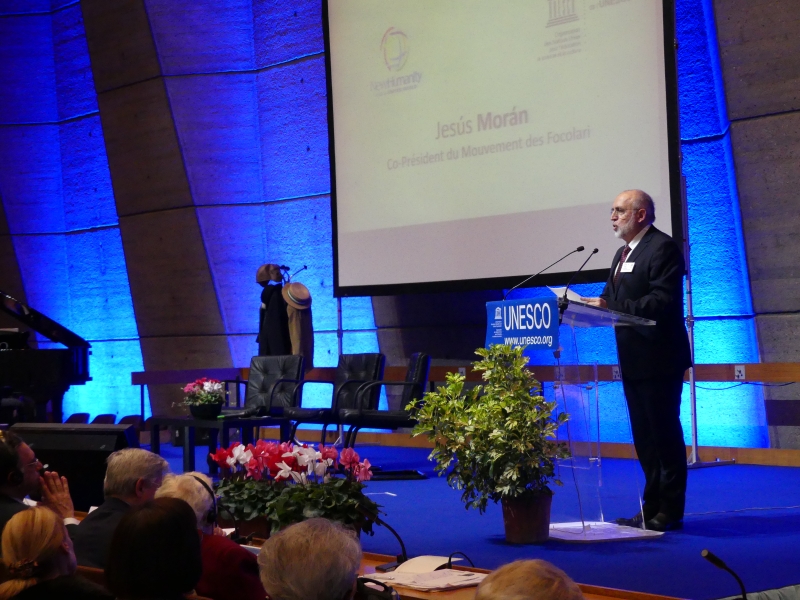
Jesús Morán © Fabio Bertagnin – CSC Audiovisivi
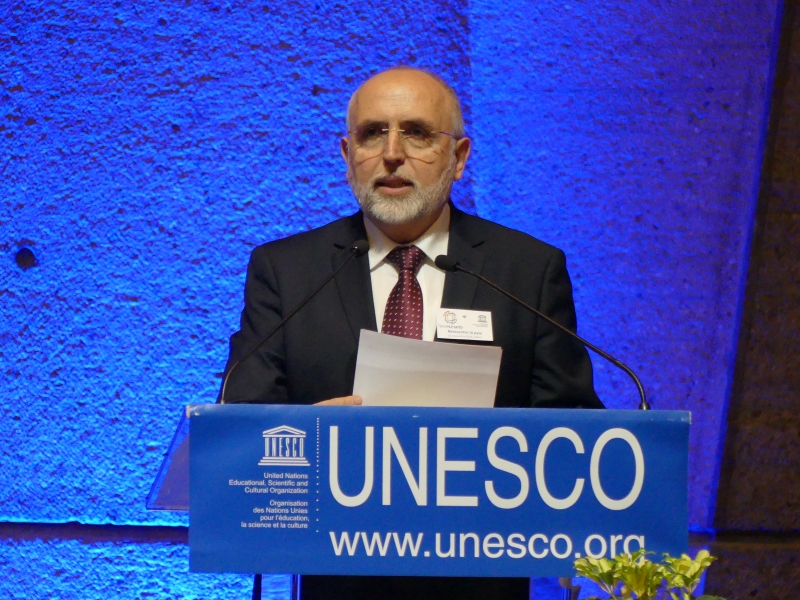
Jesús Morán © Fabio Bertagnin – CSC Audiovisivi
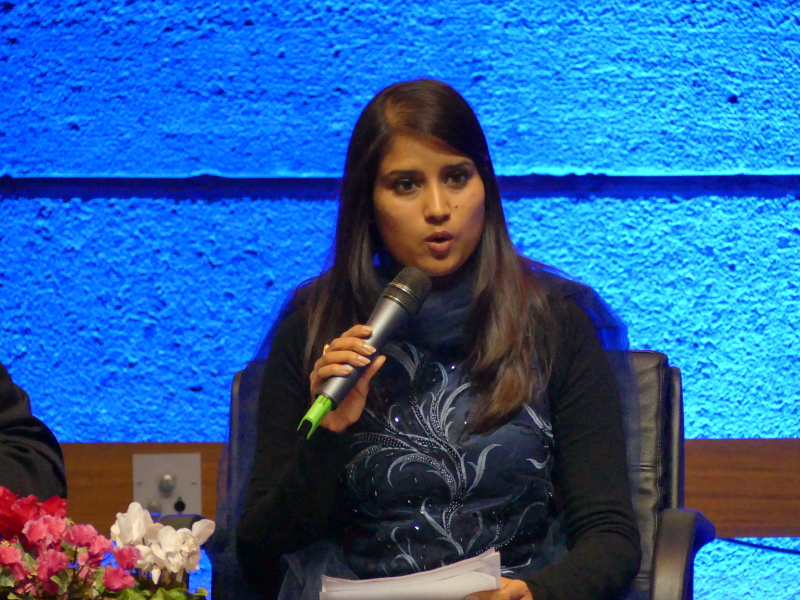
Nov 16, 2016 | Focolare Worldwide

Arooj Javed. Photo © Fabio Bertagnin – CSC Audiovisivi
“Today’s young people aspire to become global citizens and we aspire to a united world,” concluded Arooj Javed, a young student in International Relations, a statement which sums up the objectives of New Humanity.
This celebration of the 20th anniversary of the awarding of the Peace Education Prize to Chiara Lubich was not a nostalgic revisiting of the event. The recent US elections, the tragedy of refugees, climatic change, rising inequality, the greed-dominated markets – all these dramatic happenings, evoked by the various speakers, fully justified the title chosen for the symposium: “Reinventing Peace”. It was to discover – beginning with the Focolare communitarian spirituality – “new solutions” to the “agonizing face of new situations of war”, as expressed by Jesús Morán, the co-President of the Movement. Several catchphrases shed light on these reflections: intercultural laboratories, universal brotherhood, interreligious solidarity, the efforts of co-habitation and, above all, education in dialogue and peace.
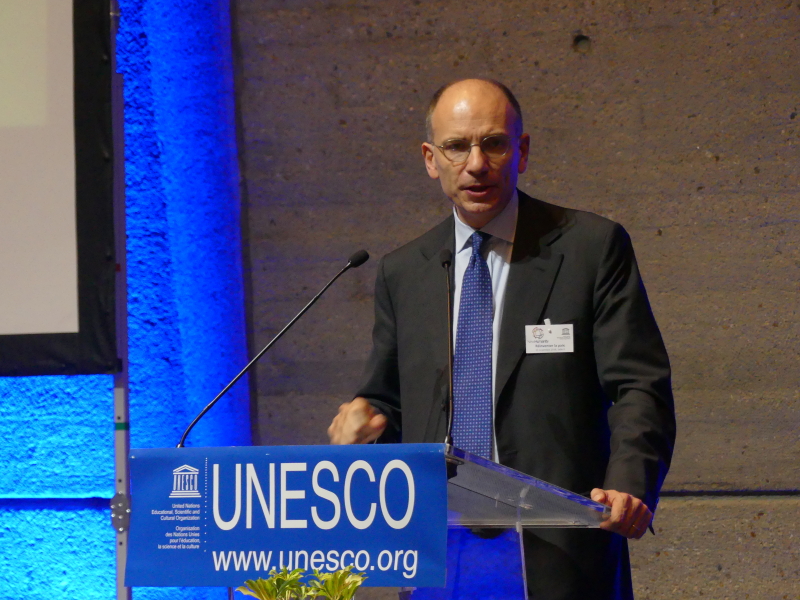
Enrico Letta. Photo © Fabio Bertagnin – CSC Audiovisivi
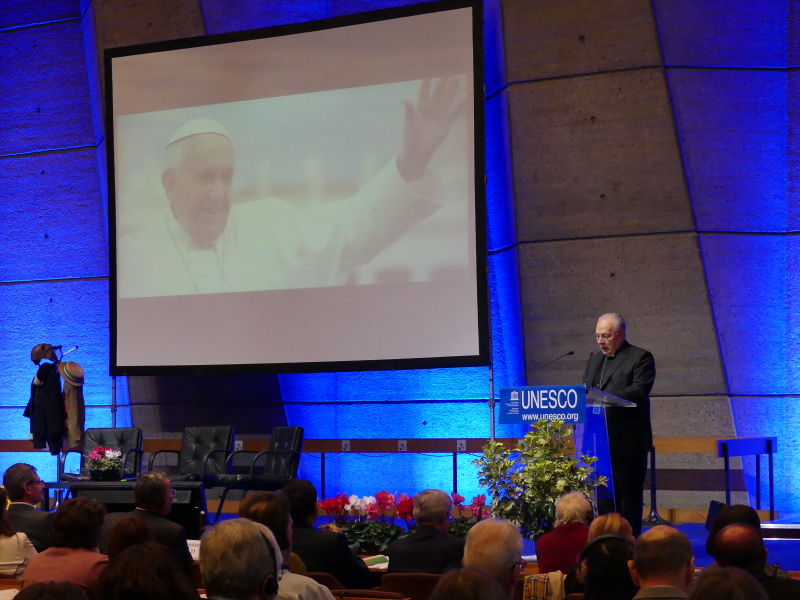
Francesco Follo, permanent observer of the Holy See to UNESCO, Photo © Fabio Bertagnin – CSC Audiovisivi
Chantal Joly (Paris)
Replay web streaming
Nov 15, 2016 | Senza categoria
- Date of Death: 16/11/2016
- Branch of belonging: Member of New Families
- Nation: Italy

 “I learned to be open and not to sweep the dust under the rug,” remarked one seminarians who had attended the workshop on group dynamics based on the Focolare’s spirituality of unity. “I realized that I have to think positive in all that I do,” said another one with great enthusiasm. The spirit of these young men is striking. It is also surprising that in India – a land with thousands of rites and divinities, a land of Hinduism and Buddhism – there should a Catholic seminary with so many young men. The Focolare’s relationship with the Pontifical Seminary of India goes back to 1980. Since then, focolarini on various occasions have been invited to present their spirituality to the seminarians. Many of those seminarians who moved on to become priests and bishops continued to promote the communitarian dimension of the Christian message, which is not always easy to do in their pastoral ministry. In 2016 they asked the Movement for a three-day workshop on group dynamics. It was the first time that the focolarini in Mumbai were faced with such a project, but they accepted the challenge. With a team of 12 men, women, experts from the fields of psychology and relationship, they got to work at putting together a programme for seminarians. It was a demanding task, because of the diversity of cultures among the seminarians who came from all over India, and also because of their different courses of study: from high school to philosophy and theology. The goal of the workshop was to provide the seminarians the tools they could use to help create a community. They had been asked to draw on those elements of Focolare spirituality that have to do with interpersonal relationships: “making ourselves one” with the other; deep listening; the pact of mutual love; sharing experiences of living the Word; giving priority to relationships. These tools were presented from the point of view of psychology and interpersonal relationships through a mixture of brief reports, roll play, testimonies of lay people and clergy and applying the tools to their own lives.
“I learned to be open and not to sweep the dust under the rug,” remarked one seminarians who had attended the workshop on group dynamics based on the Focolare’s spirituality of unity. “I realized that I have to think positive in all that I do,” said another one with great enthusiasm. The spirit of these young men is striking. It is also surprising that in India – a land with thousands of rites and divinities, a land of Hinduism and Buddhism – there should a Catholic seminary with so many young men. The Focolare’s relationship with the Pontifical Seminary of India goes back to 1980. Since then, focolarini on various occasions have been invited to present their spirituality to the seminarians. Many of those seminarians who moved on to become priests and bishops continued to promote the communitarian dimension of the Christian message, which is not always easy to do in their pastoral ministry. In 2016 they asked the Movement for a three-day workshop on group dynamics. It was the first time that the focolarini in Mumbai were faced with such a project, but they accepted the challenge. With a team of 12 men, women, experts from the fields of psychology and relationship, they got to work at putting together a programme for seminarians. It was a demanding task, because of the diversity of cultures among the seminarians who came from all over India, and also because of their different courses of study: from high school to philosophy and theology. The goal of the workshop was to provide the seminarians the tools they could use to help create a community. They had been asked to draw on those elements of Focolare spirituality that have to do with interpersonal relationships: “making ourselves one” with the other; deep listening; the pact of mutual love; sharing experiences of living the Word; giving priority to relationships. These tools were presented from the point of view of psychology and interpersonal relationships through a mixture of brief reports, roll play, testimonies of lay people and clergy and applying the tools to their own lives.  Right from the start the workshop was enthusiastically received and supported by the lively participation, which helped to make the passage from “me to us” that the young men were trying to make. Such a process will be very useful to them when they return to work in groups, and when they will be called upon to start up and conduct groups of other people. It will enable them to put into practice that culture of encounter that is so underscored by Pope Francis. Father George called the workshop “an authentic experience of God among the people.” The intuition to translate the spirituality into life, and the ideas into daily life, turned out to be a winning idea. This is confirmed by the abundant feedback that was written by the participants: “I can everything, but under one condition: that I’m always attentive to the others.” “The encouragement to put the Gospel into practice and not only study it, provoked a radical change in my life.” “This workshop has turned out to be a springboard for my vocation and my way of interacting. The other people’s stories were a great lesson for me.” “It was an extremely fruitful experience of training in being communion. New paths have opened before us. It’s a grace to be able to offer the spirituality of unity in the current social context.”
Right from the start the workshop was enthusiastically received and supported by the lively participation, which helped to make the passage from “me to us” that the young men were trying to make. Such a process will be very useful to them when they return to work in groups, and when they will be called upon to start up and conduct groups of other people. It will enable them to put into practice that culture of encounter that is so underscored by Pope Francis. Father George called the workshop “an authentic experience of God among the people.” The intuition to translate the spirituality into life, and the ideas into daily life, turned out to be a winning idea. This is confirmed by the abundant feedback that was written by the participants: “I can everything, but under one condition: that I’m always attentive to the others.” “The encouragement to put the Gospel into practice and not only study it, provoked a radical change in my life.” “This workshop has turned out to be a springboard for my vocation and my way of interacting. The other people’s stories were a great lesson for me.” “It was an extremely fruitful experience of training in being communion. New paths have opened before us. It’s a grace to be able to offer the spirituality of unity in the current social context.”

 «In a world where globalisation dictates its laws, one of the most important paradoxes we are encountering is that the voice of the southern end of the world is being ignored. Though rich in natural resources like diamonds, gold, oil and other precious minerals, Africa faces: growing poverty and underdevelopment, the worst life expectancy, and a high level of illiteracy, despite the millions of dollars in western aid deposited along the years in various projects. Why? The dramatic response is not only the war we have to suffer, or diseases, but especially corruption which in Africa has become a normal and accepted fact, tearing the continent apart. It is a continent in which the poor have to be corrupt in order to survive, get treated in hospitals, enter one of the “best” professional schools, obtain jobs and get out of jail. Not even the laws are able to eradicate this evil. In most African countries, the law is of western origin, with some nuances taken from local cultures. Protection of the individual alone, for as much as is universally accepted, goes against the principle of the community, most dear to African traditions and that underline the importance of solidarity. The individual is such only if he belongs to a community and acts in function of the community. It is the principle of the “Ubuntu”: I exist because we exist. In the African culture, the
«In a world where globalisation dictates its laws, one of the most important paradoxes we are encountering is that the voice of the southern end of the world is being ignored. Though rich in natural resources like diamonds, gold, oil and other precious minerals, Africa faces: growing poverty and underdevelopment, the worst life expectancy, and a high level of illiteracy, despite the millions of dollars in western aid deposited along the years in various projects. Why? The dramatic response is not only the war we have to suffer, or diseases, but especially corruption which in Africa has become a normal and accepted fact, tearing the continent apart. It is a continent in which the poor have to be corrupt in order to survive, get treated in hospitals, enter one of the “best” professional schools, obtain jobs and get out of jail. Not even the laws are able to eradicate this evil. In most African countries, the law is of western origin, with some nuances taken from local cultures. Protection of the individual alone, for as much as is universally accepted, goes against the principle of the community, most dear to African traditions and that underline the importance of solidarity. The individual is such only if he belongs to a community and acts in function of the community. It is the principle of the “Ubuntu”: I exist because we exist. In the African culture, the 

